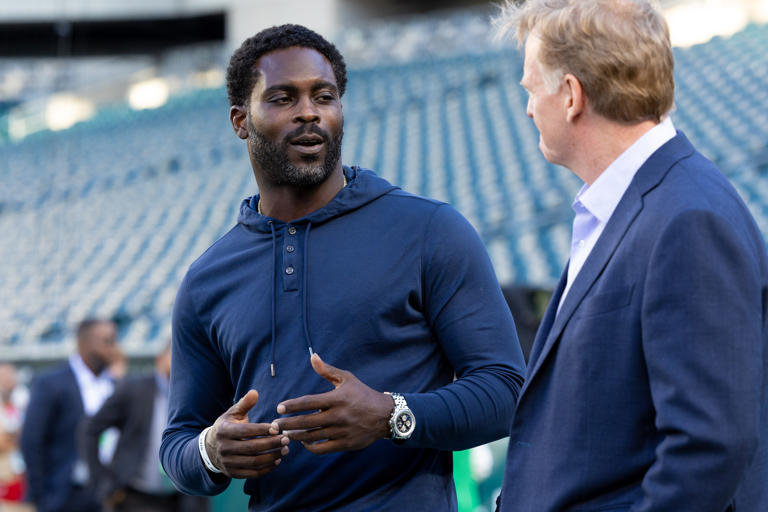
In Forty Million Dollar Slaves: The Rise, Fall, and Redemption of the Black Athlete, William C. Rhoden painted a picture that still echoes in Black America today: our greatest talents and treasures—athletes, artists, and leaders—often enrich institutions that historically overlooked, excluded, or marginalized us. The Black community invests our talent in systems that yield little return for our own people. But what happens when we turn our gifts inward, towards our own institutions? When we build our own tables?
We’ve seen what’s possible through the model set by Coach Deion Sanders—“Prime Time” himself. When Coach Prime accepted the call to lead Jackson State University, he didn’t just coach a football team. He reimagined what was possible for historically Black colleges and universities (HBCUs). He brought attention, investment, and belief to Jackson State, showing that HBCUs can be powerhouses for athletic and social transformation.
Coach Prime’s move has sparked a new wave. Former NFL stars like Eddie George at Tennessee State and Hue Jackson at Grambling State are following his lead, transforming college football by lending their credibility, leadership, and expertise to programs that deserve the spotlight. This isn’t just about football—it’s about reshaping the future of higher education. When athletes of their stature choose HBCUs, they force national attention on institutions that have been underfunded but never underwhelming.
Now, Michael Vick—arguably one of Virginia’s most celebrated sons—stands at a similar crossroads. There’s talk of him coaching at Sacramento State, but there’s a more compelling, urgent story waiting to be written at Norfolk State University. Norfolk State isn’t just a football program; it’s a cornerstone of Black professional development in Virginia and across the nation. It deserves leadership that understands its legacy and its limitless potential.
Vick’s roots run deep in Virginia. He’s from Newport News. He cut his teeth at Virginia Tech. He represents an undeniable legacy of talent and perseverance in the Commonwealth. If Vick returns home to coach at Norfolk State, he wouldn’t just be coaching a team—he’d be uplifting a community that needs him now more than ever.
HBCUs like Norfolk State produce 50% of Black teachers, 80% of Black judges, and a significant portion of our doctors, engineers, and leaders. Norfolk State alumni are woven into every facet of our society, but for far too long, the institution itself has been under-resourced and overlooked. Imagine the impact if we poured into these spaces the way we do for predominantly white institutions. Imagine Michael Vick leading Norfolk State to new heights—financially, athletically, and culturally.
What happens when we invest in Virginia, our communities, and our young men? The ripple effects are transformative. Young athletes who might otherwise feel overlooked would see themselves in Vick—a Black man who’s overcome challenges and emerged as a leader. Young professionals would see that greatness is not confined to the Alabama’s and Ohio States of the world—it lives, in our HBCUs, in the heart of Virginia.
Vick’s story is one of redemption, resilience, and opportunity. Isn’t that what HBCUs represent? Vick symbolizes redemption and resurrection in the face of adversity; surely a path his athletes will certainly endure in their lifetime. The ability to thrive in spaces that were built to center our voices, our brilliance, and our stories. This isn’t about choosing Norfolk over Sacramento. It’s about choosing legacy over convenience. It’s about answering the call to inspire the next generation of Black leaders in a place that has always belonged to us.
Former NFL stars are already changing the college football landscape. They are sending a clear message to players, coaches, and donors: HBCUs are worthy of investment, and they are vital to the future of higher education. When leaders like Michael Vick step into roles at HBCUs, they bring more than football knowledge—they bring vision, resources, and credibility that can reshape entire institutions. Norfolk State doesn’t just need a coach. It needs a leader, a visionary, and someone who believes that greatness lives here.
Virginia has given so much to Michael Vick. It’s time for him to give back—not to a system that doesn’t need him, but to a community that does. Norfolk State is calling. It’s time to answer.
Reverend Robert K. Hoggard is the inaugural Associate Director of Leadership Giving,
Diversity, and Belonging Initiatives at Yale University, where he plays a leading role in
executing plans to diversify Yale’s overall donor base. Robert is also a graduate of
American Baptist College, an HBCU. A doctoral candidate at University of Rochester’s
Warner School of Education researching the experiences of African American male
students at Predominantly White Institutions, Robert’s dream is to serve as a college
president of an HBCU. He returns to HBCU Buzz as a columnist, committed to
amplifying voices and issues that impact Black higher education and culture.
Disclaimer: This piece was written prior to the announcement of Michael Vick’s appointment as the head coach at Norfolk State University.

